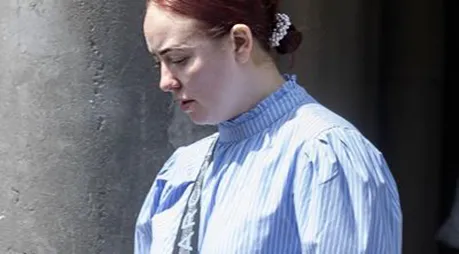 Emma Louise Mcloughlin reached out to the Irish newspaper Sunday World last week after the Sligo Circuit Court ruled that she is to serve two years in jail starting this July. The verdict was delivered after multiple adjournments, and it concerns theft from the Kilmacowen Community Preschool and Playgroup amounting to over €66,000. According to Ms Mcloughlin, this turn of events was the result of gambling struggles that “got out of control.”
Emma Louise Mcloughlin reached out to the Irish newspaper Sunday World last week after the Sligo Circuit Court ruled that she is to serve two years in jail starting this July. The verdict was delivered after multiple adjournments, and it concerns theft from the Kilmacowen Community Preschool and Playgroup amounting to over €66,000. According to Ms Mcloughlin, this turn of events was the result of gambling struggles that “got out of control.”
Her transgressions were committed between June 2020 and December of the same year, after she started gambling online and could not keep up with the costs through legal means. One of the most substantial instances of loss ended with her being down €11,500 after she purchased an €8,000 car with a portion of the stolen money, sold it for €14,000, and spent the majority of the said sum on wagering.
Judge Keenan Johnson expressed that he was “sick of excuses” and stressed her most recent offer to pay €40 in compensation per week would have resulted in a 30-year wait for the entire sum to be compensated. He also made remarks on how Ms Mcloughlin had reportedly paid for alcohol and drugs as opposed to paying back the stolen money, but she denied these accusations.
Ms Mcloughlin further pointed out that she had been pregnant and emphasised that she has been “off it for over a year.” When she spoke with the Sunday World, she deemed her punishment to be too severe, especially in comparison to the suspended sentence another individual had been handed during an assault-related hearing prior to Ms Mcloughlin’s own. In addition, the plaintiffs have already been paid back thanks to insurance, according to what she heard in court. Ms Mcloughlin continued, addressing allegations that she had attempted to “mislead” the court through claims of being bipolar, and said that deception had not been her goal.
What Regulators Are Doing to Curb Problem Gambling
 Ms Mcloughlin’s case could be seen as an example of the dangers online wagering can pose for gamblers who are vulnerable to addiction. With situations resembling this one and other gambling-related health concerns in mind, the Irish Government is planning to establish the Údarás Rialála Cearrbhachais na hÉireann (Gambling Regulatory Authority of Ireland). This entity will be tasked with regulating both land-based and remote gambling, as well as implementing measures to protect problem gamblers and raise awareness of the issue. Among the Government’s proposed changes are strict regulations regarding the advertisement of online gambling as well as a ban on promotions that advertise free bets.
Ms Mcloughlin’s case could be seen as an example of the dangers online wagering can pose for gamblers who are vulnerable to addiction. With situations resembling this one and other gambling-related health concerns in mind, the Irish Government is planning to establish the Údarás Rialála Cearrbhachais na hÉireann (Gambling Regulatory Authority of Ireland). This entity will be tasked with regulating both land-based and remote gambling, as well as implementing measures to protect problem gamblers and raise awareness of the issue. Among the Government’s proposed changes are strict regulations regarding the advertisement of online gambling as well as a ban on promotions that advertise free bets.
While the gambling industry of neighbouring Britain already has a dedicated regulator, the UK Government and the Gambling Commission (UKGC) itself are looking to further improve gambling-related legislation when it comes to player protection through the Gambling White Paper. A number of the potential amendments concern remote gambling specifically and how those who partake in it can be better protected. One such proposed measure has to do with the UKGC’s intention to review how online games can be designed to be safer. Rules that would cap single wager limits on online slots at between £2 and £15 are also potentially in the works.
- Author


